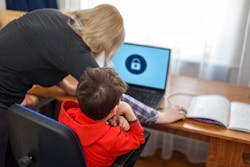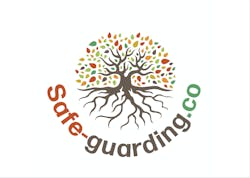stay safe online during lockdown

Some of the data collected by this provider is for the purposes of personalization and measuring advertising effectiveness.
Some of the data collected by this provider is for the purposes of personalization and measuring advertising effectiveness.


Like teenagers and young people around the world, our international students are no strangers to the internet; using it for their studies, news updates, social media, meeting platforms and messaging apps to keep in touch with their friends and families at home. In the wake of the pandemic, the internet has become an even more valuable commodity, allowing students to participate in interactive online classrooms with their teachers and peers and keeping people connected while social distancing, so it makes sense that internet usage is increasing.
The NSPCC published research last week to suggest that lonely children are more at risk of online abuse. With many teenagers and young people affected by restrictions, they are likely to be feeling bored, frustrated , lonely and vulnerable. With their internet activity increasing during the pandemic, it is more important than ever to keep online safety high on the agenda.

All our partner schools will have their own safeguarding guidelines and advice for parents and students and will, no doubt, be following the government guidelines for practicing remote learning safely. For parents, it can be very overwhelming to try to monitor their children's online usage and balance freedom and privacy with safety, so it's important to use the aids available. Implementing parental controls on the internet cannot eliminate all risk but is a first step to ensuring there are some filters on what children can access.
Along with setting up parental controls, the most important steps to take are educating and communicating with your child about their online safety.
Bright World would like to reassure our students that we are still available should they have any concerns and students can contact their Bright World Buddy as usual, or any member of staff in the Head Office team. Students should also be reassured that their teachers and pastoral staff at their schools, will still be happy to discuss any issues or concerns.

Although tempting, students should avoid posting publicly about any vulnerabilities or anxieties they are currently experiencing, as this may lead to them being seen as a target for bullying or abuse.
All student profiles should be private and personal data such as date of birth and address should be withheld. Students should also be careful and selective with the photographs they choose to publish or share and remember that once they have published something, it can be shared countless times.
Students should use the internet to communicate with their current friends, rather than engaging with unknown people.
Students should always speak to a trusted adult if they have any concerns about their own or someone else's online behaviour.

In our podcast, linked below, Jenny Rumble talks to Fiona Lee of Safe-guarding.co about safety online during lockdown. Safeguarding.co works with companies and provides clear steps they can take to help staff and organisations keep children, adults and families safe. Fiona has a lot of experience with the risks associated with online gaming and communication via social media and gives us some advice on how to protect children who are using the internet a lot more than usual at the moment.

With students isolating at home and schools offering online classes. It is now more important than ever that our students know how to stay safe online. Lia talks to Jenny Rumble, Bright World Safeguarding and Operations Manager and special guest - Safeguarding expert, Fiona Lee of, Safe-Guarding.co.
Content warning - Please be advised that this episode includes the mention of safeguarding topics that some listeners may find distressing.